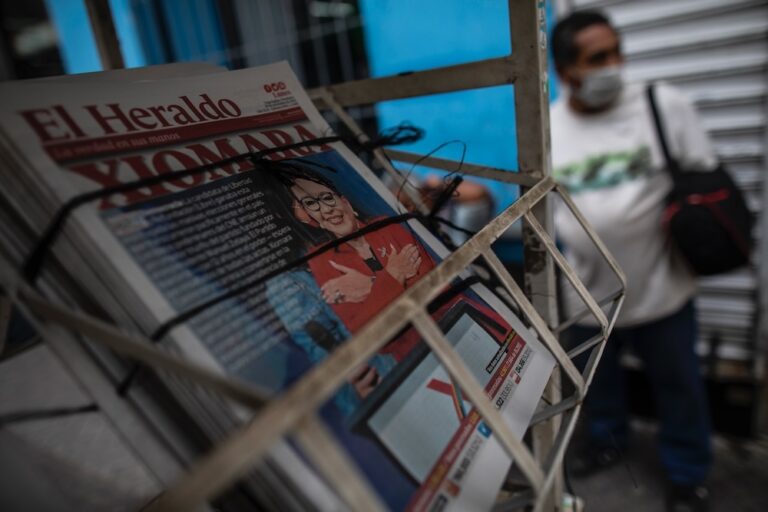Honduras has taken a notable step forward in recognizing the rights of transgender people and contributing to a more just and equitable society. Countries in the region lagging on transgender rights should take note.
This statement was originally published on hrw.org on 13 May 2022.
Groundbreaking commitments in implementing regional court’s ruling
By Cristian González Cabrera, Researcher, Lesbian, Gay, Bisexual, and Transgender Rights Program
“We recognize before the international community, the Honduran people, and the family of Vicky Hernández, the responsibility of the Honduran state in the events that led to her death,” President Xiomara Castro said on May 9.
Vicky Hernández, a trans woman, sex worker, and activist with trans rights group Unidad Color Rosa was killed in San Pedro Sula in June 2009 during a military coup. In 2012, Cattrachas Lesbian Network, a Honduran LGBT rights organization, filed a petition before the Inter-American Commission on Human Rights on behalf of the family to hold the state responsible for her murder.
The commission submitted the case to the Inter-American Court of Human Rights, which in March 2021 found Honduras responsible for Hernández’s killing.
The court found a violation of the right to life based on the fact that police harassed Hernández hours before she was killed and, due to the coup, the military and police had effective control of the streets on the night she died. The court also noted the violence lesbian, gay, bisexual, transgender, and intersex (LGBTI) people faced in Honduras at the time Hernández was killed and the prevailing impunity for such acts.
The court also found that Honduras violated the right to life because the authorities did not comply with their obligation to effectively investigate Hernández’s death, as Human Rights Watch argued in an amicus brief submitted to the court in November 2020.
President Castro, who took office in January, made trailblazing commitments to implement the court’s ruling. She committed to creating a legal gender recognition procedure in Honduras that will allow transgender people to modify their legal documents to reflect their gender identity. This will go a long way to address the risk of discrimination that many transgender people face because of a mismatch between their gender and the gender marker on their official documents.
Castro also undertook to continue the investigation into Hernández’s murder and agreed to comply with other aspects of the court’s ruling, including implementing LGBTI awareness trainings for security forces and a protocol for criminal investigations in these cases, and improving data collection in cases motivated by anti-LGBTI bias.
Honduras has taken a notable step forward in recognizing the rights of transgender people and contributing to a more just and equitable society. Countries in the region lagging on trans rights should take note.



